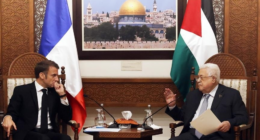By: Yahye S. Bulqaas
Mogadishu (Commentary) — For far too long the 4.5 power-sharing system has retained an explanatory appeal for political analysts preoccupied with making sense of the Somali political turmoil.
Unveiled in 2000 at the Djibouti-sponsored Somali Reconciliation Conference, the power-sharing formula divides Somalis into four major clans and an alliance of clans known as Others.
Since 1960 the presidency has rotated between two clans — Darod and Hawiye. Professor Ahmed Ismail Samatar described this uncodified arrangement as duopoly.
This theory works that if one pays attention to clan identities of Somalia’s successive presidents.
It loses its analytical power if one concentrates on the nature of election outcomes since 2004.
Neither the incumbent President of Somalia Mohamed Abdullahi Mohamed nor his predecessor Hassan Sheikh Mohamud was a favourite candidate in 2017, and 2012, respectively.

Arithmetically, each Presidential candidate has a 20% chance to win the Somali Presidency, assuming that only five candidates from the five Somali clans are contesting the post.
The duopoly argument loses sight of substantive political power embedded in Federal Member States.
Hawiye and Darod political classes control four Federal Member States — two for each clan.
Banadir, the seat of the capital is a Hawiye sphere of inclusivity due to the irremediable dispossessions after the collapse of the state in 1991.
Some Darod and Hawiye politicians have struck an informal political deal: keep the capital city in Mogadishu and keep the federal system.
Puntland, the originator of the post-1991 federal system, argues the federal system is the middle path between secessionist impulses and the centralism tendencies.
The argument runs thus: centralism puts the periphery at a disadvantage, empowers dictatorship and results in state collapse; unilateral secession violates territorial, and the political unity of Somalia.
Under the current federal system only three clans wield political power — Darod, Hawiye, and Digil & Mirifle.
Dir and the Fifth Clan (aka Others) do not control a Federal Member States but have a total of 40% voting power during the presidential election.
Voting power does not necessarily equate to substantive political power in the absence of a federated stronghold to fall back on.

The 4.5 power-sharing system pales into insignificance given the seemingly enduring 2/5 (two-fifth) element in Somali politics where political classes from only two clans — Darod and Hawiye — make consequential political decisions.
How does a 40% voting power trump 60% voting power?
The answer could be found in the distinctive political outlooks represented by the political power vested in the capital and the primacy of the federal system.
When the former Somalia Prime Minister Omar Abdirashid Ali Sharmarke, in a Tweet, proposed sidelining the Somali Presidency during electoral talks, he sought to deepen the 2/5 supremacy and expected Prime Minister Mohamed Hussein Roble to fall for the gimmick.
Forming an alliance against the incumbent Somalia President is proving difficult.
He represents a strong state school of thought against the fiefdom-based political supremacy inspired by post-1990 warlords in Somalia.
There is no guarantee that the three other Somali clans — Dir, the Fifth Clan, and Digil & Mirifle — will back a temporary political alliance of two social groups at the expense of 60% of the population; a quantification based on the voting rights under the 4.5 power-sharing system.

Roble is under pressure to maintain the political inequalities that relegate the Fifth Clans to the status of figureheads in the Somali political firmament.
Giving in to the pressure will not only be a betrayal but also a repeat of the political miscalculation committed by United Somali Congress in 1991.
A government based in Mogadishu is vulnerable to the whims of local politicians who can mobilize militias.
This is the lesson from the recent clashes in the capital over the controversial mandate extension for federal institutions. Clan militias operating alongside security forces in Mogadishu bode the end of Somalia as we know it; and its break-up into cantons ruled by born-again warlords.
Politically marginalised Somali social groups are seeking ways to end their status of playing second fiddle to the two dominant clans in Somali politics.
A lot depends on how they respond to the unholy political alliance symbolized by the 2/5 arrangement.
This article first appeared in the © Puntland Post, 2021 and is republished with permission










Comments are closed.